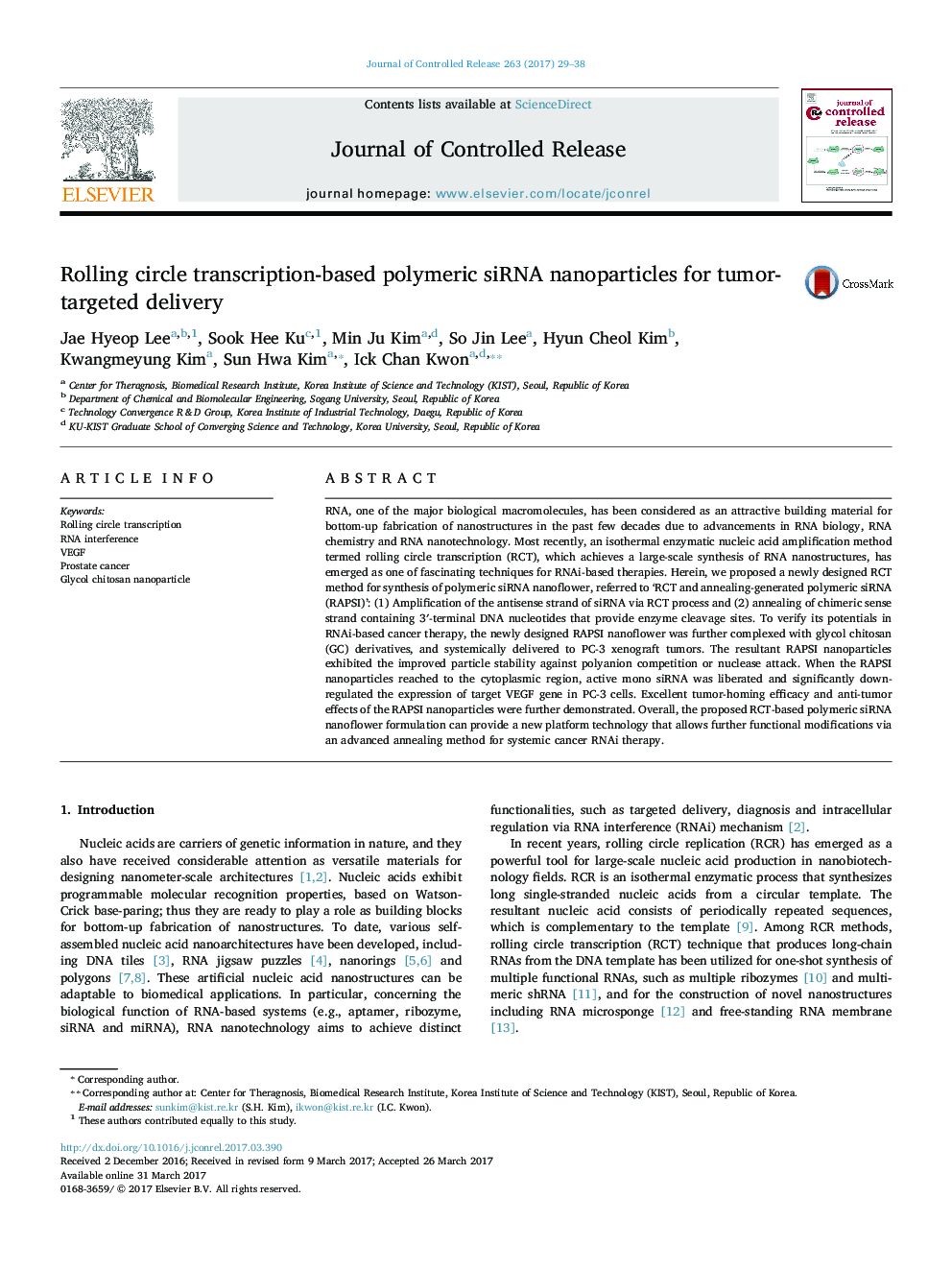| Article ID | Journal | Published Year | Pages | File Type |
|---|---|---|---|---|
| 5433388 | Journal of Controlled Release | 2017 | 10 Pages |
RNA, one of the major biological macromolecules, has been considered as an attractive building material for bottom-up fabrication of nanostructures in the past few decades due to advancements in RNA biology, RNA chemistry and RNA nanotechnology. Most recently, an isothermal enzymatic nucleic acid amplification method termed rolling circle transcription (RCT), which achieves a large-scale synthesis of RNA nanostructures, has emerged as one of fascinating techniques for RNAi-based therapies. Herein, we proposed a newly designed RCT method for synthesis of polymeric siRNA nanoflower, referred to 'RCT and annealing-generated polymeric siRNA (RAPSI)': (1) Amplification of the antisense strand of siRNA via RCT process and (2) annealing of chimeric sense strand containing 3â²-terminal DNA nucleotides that provide enzyme cleavage sites. To verify its potentials in RNAi-based cancer therapy, the newly designed RAPSI nanoflower was further complexed with glycol chitosan (GC) derivatives, and systemically delivered to PC-3 xenograft tumors. The resultant RAPSI nanoparticles exhibited the improved particle stability against polyanion competition or nuclease attack. When the RAPSI nanoparticles reached to the cytoplasmic region, active mono siRNA was liberated and significantly down-regulated the expression of target VEGF gene in PC-3 cells. Excellent tumor-homing efficacy and anti-tumor effects of the RAPSI nanoparticles were further demonstrated. Overall, the proposed RCT-based polymeric siRNA nanoflower formulation can provide a new platform technology that allows further functional modifications via an advanced annealing method for systemic cancer RNAi therapy.
Graphical abstractDownload high-res image (101KB)Download full-size image
